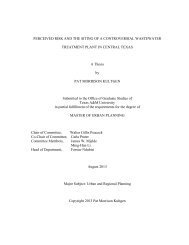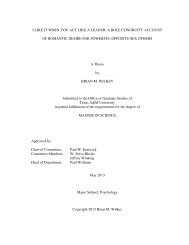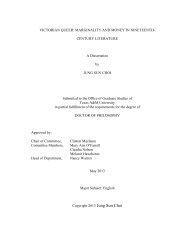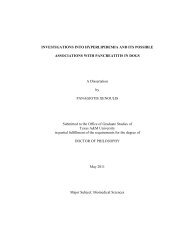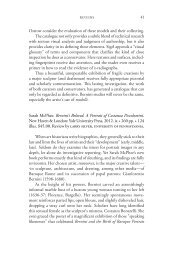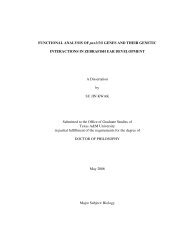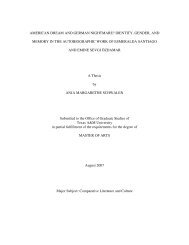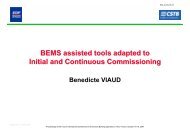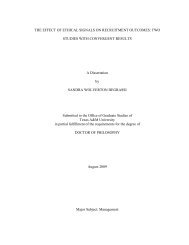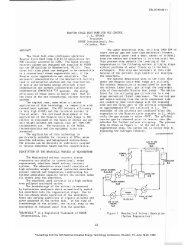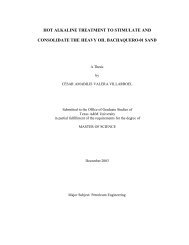A Dissertation by GRACE HUI-CHIN LIN Submitted to the Office of ...
A Dissertation by GRACE HUI-CHIN LIN Submitted to the Office of ...
A Dissertation by GRACE HUI-CHIN LIN Submitted to the Office of ...
Create successful ePaper yourself
Turn your PDF publications into a flip-book with our unique Google optimized e-Paper software.
practice <strong>the</strong> usages in interlanguage because <strong>the</strong>y used foreign languages as well as<br />
mo<strong>the</strong>r <strong>to</strong>ngues <strong>to</strong> think.<br />
Importantly, <strong>the</strong> intentionality displayed <strong>by</strong> Cheng Chih was that he would<br />
use interlanguage <strong>to</strong> handle <strong>the</strong> condition where his culture needed <strong>to</strong> be introduced.<br />
Cheng Chih’s case explained why people in Asia, systematically and gradually,<br />
develop various forms <strong>of</strong> English, including Chinglish, Singalish, and Taiwanlish as<br />
well as interlanguage systems. Indeed, <strong>the</strong>se three new types <strong>of</strong> Englishes (Chinglish,<br />
Singalish, and Taiwanlish) are intended <strong>by</strong> Chinese people and can be spoken and<br />
comprehended systematically, even au<strong>to</strong>matically.<br />
Four students in this study (Sung Ru, Cheng Chih, Tien Long, and Ling Mei)<br />
believed that <strong>the</strong> interlanguage strategy would contribute <strong>to</strong> <strong>the</strong>ir communication<br />
fluency when <strong>the</strong>y needed <strong>to</strong> introduce Taiwanese culture. The informal speeches<br />
generated through interlanguage would assist <strong>the</strong>m in interpreting specific objects<br />
related <strong>to</strong> <strong>the</strong> cultures <strong>of</strong> Taiwan since some words about Taiwanese culture might not<br />
be found very easily in <strong>the</strong> dictionary or contents <strong>of</strong> <strong>the</strong>ir textbooks. Besides, some<br />
students (Sung Ru and Tien Long) observed that users <strong>of</strong> this strategy usually had<br />
personalities that were braver, more creative, or more humorous than <strong>the</strong> o<strong>the</strong>r<br />
students in <strong>the</strong> same class.<br />
Conclusively, <strong>the</strong> major <strong>the</strong>mes related <strong>to</strong> <strong>the</strong> fourth research question were<br />
mo<strong>the</strong>r <strong>to</strong>ngue,” and “intentionality.” Also, “cultural orientation,” and “personalities”<br />
were perceived and deeply discussed <strong>by</strong> <strong>the</strong> respondents.<br />
169



